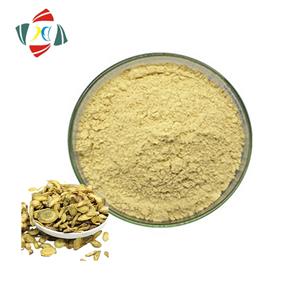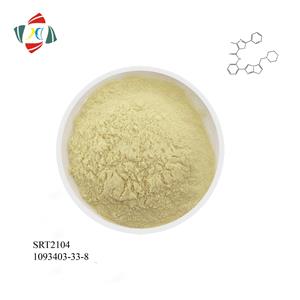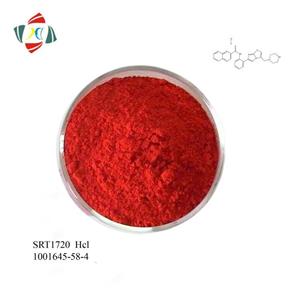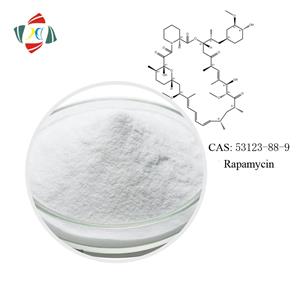الجلوتاثيون (GSH) رقم سجل المستخلصات الكيميائية: 70-18-8
Glutathione (GSH) CAS No.: 70-18-8
Glutathione is a short peptide composed of 3 amino acids, which exists in almost every cell of the body However, glutathione must be produced by cells and their precursors (vitamin C and alpha lipoic acid) before it can work effectively in the human body The presence of glutathione is necessary to maintain normal immune system function It is well known that it plays a key role in proliferating lymphocytes (cell-mediated specific immunity) that occurs in developing an effective immune response In addition, the immune system in cells produces a lot of oxiradicals due to their normal operation, so it requires a higher concentration of antioxidants than ordinary batteries. Glutathione plays an important role in achieving this requirement
principle
Strengthening the human immune system and your body's immune activity involves multiplying unblocked lymphocytes and antibody production needs to maintain normal levels of glutathione in lymphocytes
Antioxidants and free radical scavengers glutathione have the harmful effects of ring protection, including bacteria, viral pollutants and free radicals
Regulating other antioxidants - glutathione other important antioxidants such as vitamin C and e cannot do their job well and fully protect your body from disease
Glutathione is a small molecule peptide substance containing sulfhydryl group, which has two important antioxidant effects and integrated detoxification effects. Glutathione is a tripeptide composed of glutamic acid, cysteine and glycine. The sulfhydryl group on cysteine is its active group (so glutathione is often abbreviated as g-sh). It is easy to complex with iodoacetic acid, mustard gas (a toxic gas), lead, mercury, arsenic and other heavy metal salts, and has an integrated detoxification effect. Glutathione (especially glutathione in hepatocytes) plays a very important physiological role in integrating detoxification. It can combine with certain drugs (such as paracetamol) and toxins (such as free radicals and heavy metals) to participate in biological transformation, so as to convert harmful toxins in the body into harmless substances and excrete them out of the body.
Glutathione has two forms: reduced (g-sh) and oxidized (g-s-s-g). Under physiological conditions, reduced glutathione accounts for the majority. Glutathione reductase catalyzes the exchange between the two types. The coenzyme of this enzyme is NADPH provided by phosphate sugar bypass metabolism.
Role of glutathione
Another major physiological role of glutathione is as an important antioxidant in the body. It can remove free radicals in the human body, clean and purify environmental pollution in the human body, thus improving the physical and mental health of people. Because reduced glutathione itself is easily oxidized by some substances, it can protect the sulfhydryl groups in many proteins and enzymes from being oxidized by harmful substances such as free radicals in vivo, so that proteins and enzymes can play their physiological functions. There is a lot of glutathione in human red blood cells, which is of great significance to protect the sulfhydryl group of the protein on the red blood cell membrane in the reduced state and prevent hemolysis. It can also protect the hemoglobin from oxidation by hydrogen peroxide, free radicals and so on, so that it can continue to have normal oxygen transport capacity. Under the action of oxidants such as hydrogen peroxide, part of hemoglobin in red blood cells is oxidized into ferric iron, which changes hemoglobin into methemoglobin, thus losing oxygen carrying capacity. Reduced glutathione can not only directly combine with oxidants such as hydrogen peroxide to generate water and oxidized glutathione, but also reduce methemoglobin to hemoglobin.
In addition, vitamin C is also an important antioxidant in the body. Because vitamin C can be hydrogenated or dehydrogenated reversibly, vitamin C plays an important role in many redox reactions in vivo. For example, the active group of many enzymes is sulfhydryl (- SH), and vitamin C can maintain - SH in a reduced state to maintain the activity of the enzyme; Vitamin C can transform oxidized glutathione into reduced glutathione (GSH) and reduce hydrogen peroxide (H2O2) produced by body metabolism; Vitamin C can also protect vitamins A, e and some B vitamins from oxidation. Therefore, when using glutathione, it can be combined with vitamin C to improve its efficacy.
At present, glutathione drugs have been developed artificially and widely used in clinic. In addition to chelating heavy metal, fluoride, mustard gas and other toxins by using its sulfhydryl group, it is also used in hepatitis, hemolytic diseases, keratitis, cataract and retinal diseases as auxiliary drugs.




